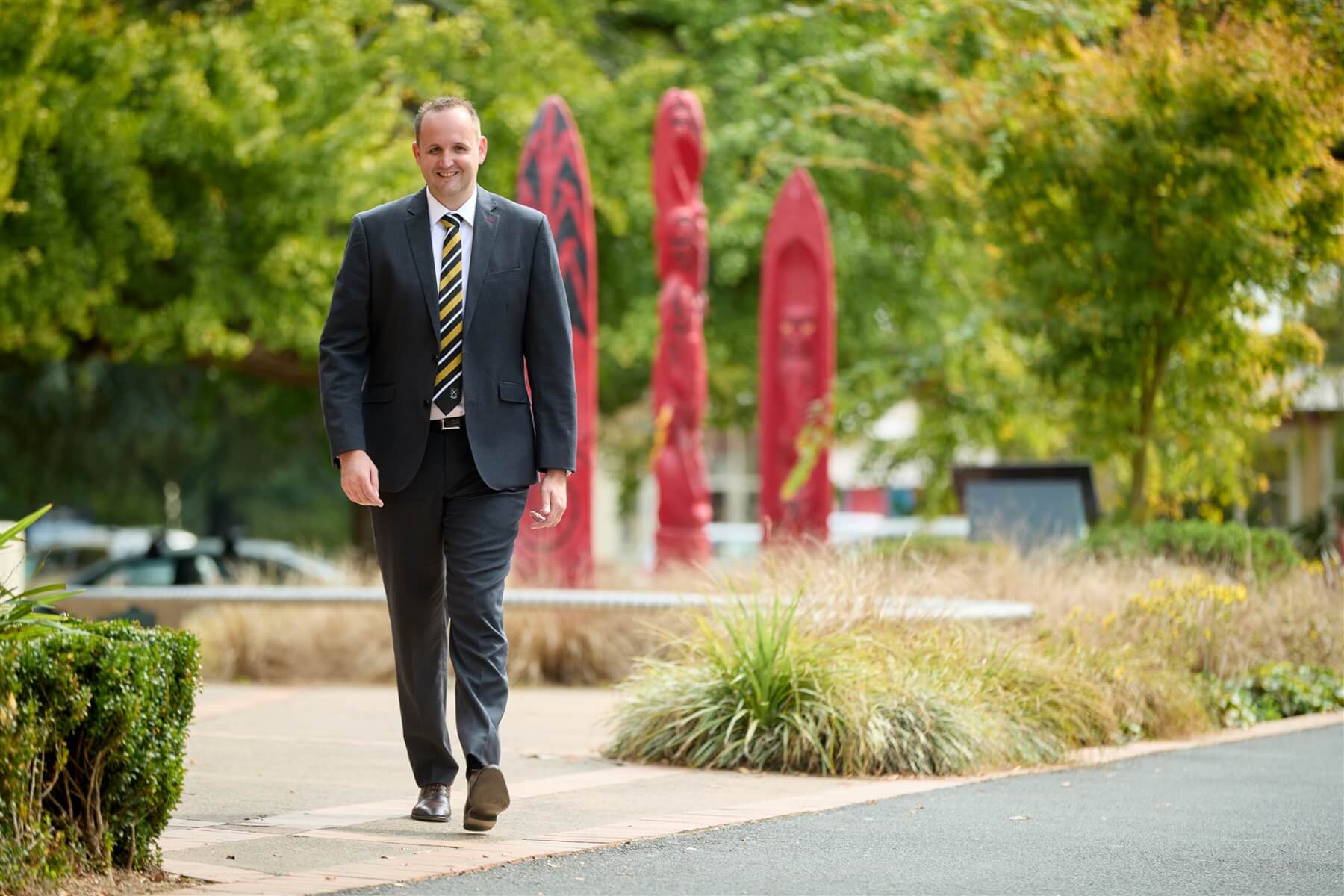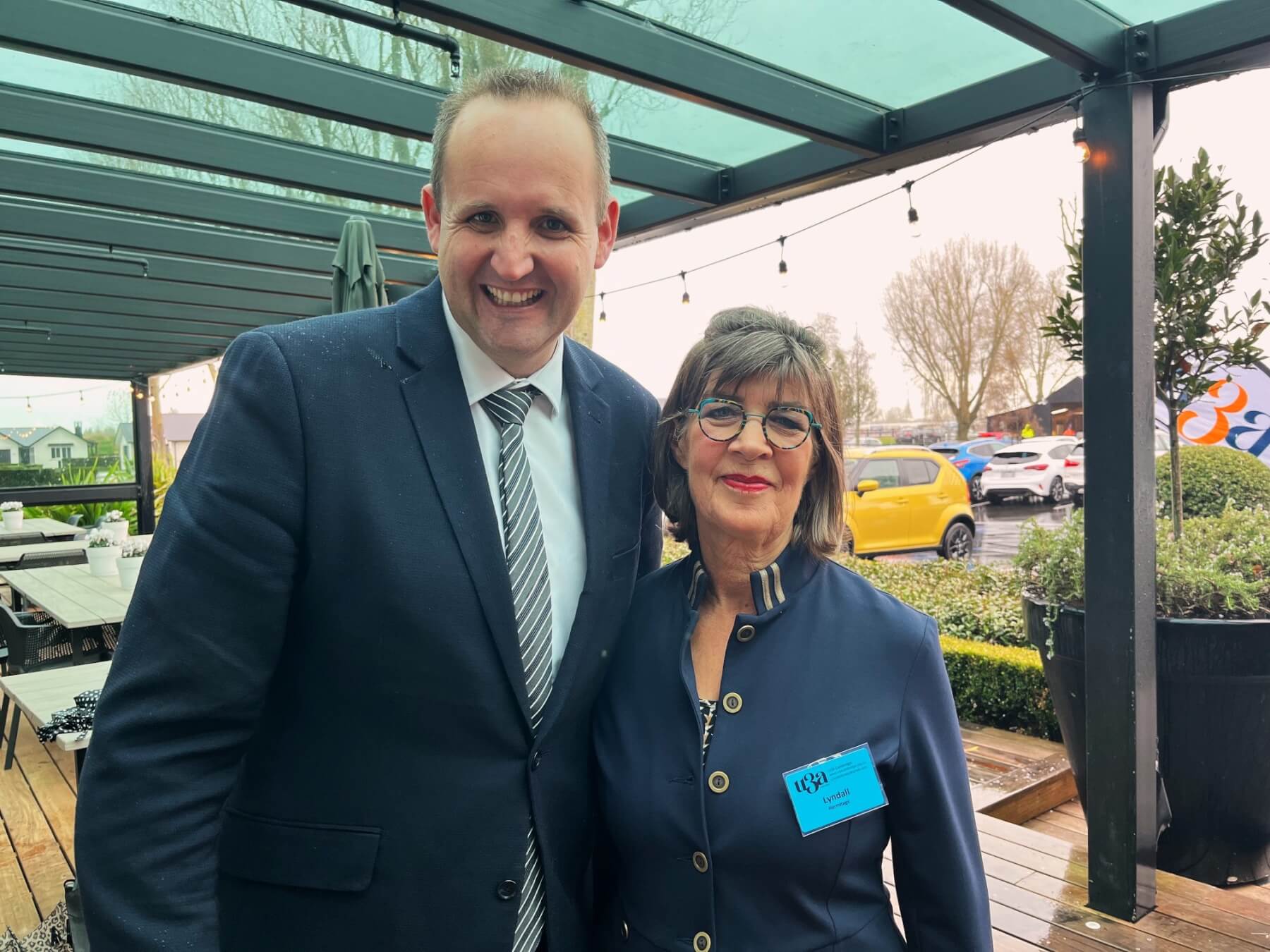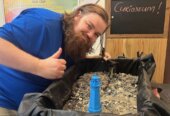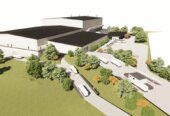Those despairing for today’s youth were given a beacon of hope this month when St Paul’s Collegiate School headmaster Ben Skeen delivered a straight-talking message to Cambridge parents and youngsters.
Speaking at Cambridge U3A, Skeen’s talk entitled ‘There still is hope – educating youth for a bright future’ drew applause at various junctures.

St Paul’s Collegiate School headmaster Ben Skeen
He suggested that parents who support their children at Saturday sports fixtures but don’t turn up for teacher interviews are subliminally passing on the message that education is less important than sport. The importance of parental modelling, particularly to teenage boys, was emphasised with Skeen saying boys are more influenced visually than girls and are thus likely to take witnessed behaviours into adulthood.
His call to students was to understand that the world does not revolve around them, that they are a part of something bigger than themselves and that they have an obligation to pay forward to others the privilege of their education.
Healthy competition is part of the human psyche, he said, and tracking a student’s progress through assessment or exams is needed – particularly in the teen years – because without it most would not push themselves to achieve. Resilience cannot be taught, he went on, but it can be learned by an individual who is placed in a situation of discomfort, where their heart rate rises and they are driven to strive for success.
Young people need to do the right thing even when no-one is watching. Students at his school are expected to dress and behave in a certain way, do cross country, swim with the rest of them, respectfully cheer on fellow students who have excelled and are called on stage at assembly, he added. “They know to do that because it’s what we do around here … that is part of being part of something bigger than yourself.”
Skeen became headmaster at St Paul’s Collegiate School in May 2021 after holding a variety of positions at Auckland Grammar. Outside of work, he was contracted to NZ Rugby’s high performance match official squad for 15 years, 12 of which he spent providing refereeing services to world rugby, officiating numerous international tests. He retired from that role at the end of 2019.

Sport at St Paul’s Collegiate
Skeen described two types of knowledge. One is biological primary knowledge – things learned through observation, such as speech, behaviour – and the other, biological secondary knowledge – material that is taught, such as maths and science.
“That is important … the first is learned through observation, the other through structured teaching,” he said. “What this country did in around 2007 was rewrite our education curriculum; it introduced key competencies they wanted to know and 90 percent of what was on that list were things that are biological primary knowledge.”
From then on, schools assimilated things like self-management, respect and thinking skills into the school day. “They are important but should not be at the expense of subjects in the secondary knowledge bank.”
Skeen said he is optimistic about education minister Erica Standford’s upcoming learning refresh, which incorporates the ‘science of learning’ and the view that teachers will learn more about teaching defined subjects rather than simply managing classrooms.
‘There will be more focus on what students need to learn … it will be more prescriptive rather than organic, with an acknowledgement of what should be known by all students by age 15. Bringing back structured literacy, or phonics, will also be a game-changer.
“The changes we are seeing makes me excited about the future, and hopeful for our young people.”

St Paul’s Collegiate School headmaster Ben Skeen with Cambridge U3A committee member, Lyndall Hermitage.









